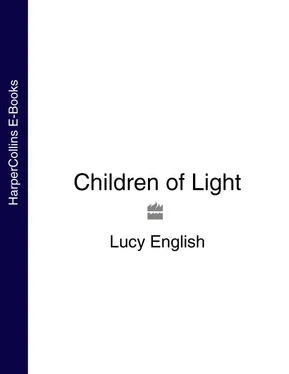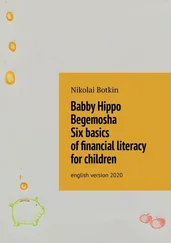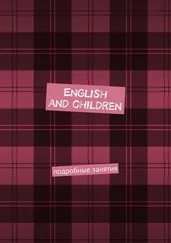Later, she walked to the village, not up the overgrown track but down the terraces to a small road. On the other side on level ground was a large olive grove, well tended, its trees clipped and neat and the grass underneath cleared away in a circle around each trunk. Beyond the field was a farmhouse and beside it two pencil-like cypresses, dark bottle green. This was the last dwelling place, past here the road petered out into another track, which picked its way through dense woods to Rochas, the third village in the area. But Mireille didn’t go that way. She followed the road to St Clair.
Near the village plenty of stone huts had been converted to holiday cabins, cabanons , some simple and rustic, others flagrantly pretentious, with coloured shutters, stripy awnings, brass lamps and even swimming pools. They were all empty. Of her own hut nothing could be seen except a glimpse of the rock it sat on. In her absence the tree cover had effectively removed it.
Six hairpin bends took the main road from the valley floor to the top of the hill and the small road joined it at the fourth. From here it was a steep, long haul. The locals drove round the roads as if pursued by the devil and every time a car came down she had to jump into the verge. She arrived panting and with aching legs.
The entrance to the village was a tree-lined road guarded by the statue for the heroes of the Resistance. A sturdy modernist woman with large flat feet. Her torch, held high, looked like a triple-whip ice cream cone. She had been placed at the far end of the boules yard, slightly too anatomically correct to be any nearer the church. Mireille rested on the wall of the boules yard to get back her breath. The village of Lieux was in a patch of sunlight, suddenly golden and shining. Behind it rose the high dark ridge, the end of the empty plateau of the Canjurs which spread all the way to the Gorge du Verdon. Lieux was the last village before this wilderness.
The plateau was owned mostly by the military. From far away she could hear the whump of shell fire. The dogs in the village started barking.
The café was busy. French people eat lunch whether it’s March, January or June and that morning there had been a mini-market in the square. Two vegetable stalls, a cheese van and a butcher. At this time of year Jeanette’s customers were traders. In the winter she served one dish and today it was bourride , a garlicky fish soup. Her mother helped wash up and serve and at the back of the café, as usual, the huge Macon drank beer and watched television.
Jeanette’s mother, Auxille, was a tiny old woman with thin, dark hair. She wore a Provençal apron in much the same material as her daughter’s flouncy dresses. She was as nosy as her daughter and twice as uninhibited about showing it. Mireille came out of the post office and went towards the shop. As she crossed the square they both rushed out to look. Their comments were quite audible.
‘I’m sure she’s a scientist, a botanist perhaps, she looks like one. She’s not American, she speaks French too well. She could be Canadian.’ In her hand was a glass of lager for one of the van drivers.
‘She won’t like Odette’s prices,’ said Auxille. ‘The Villeneuves should have told her about the market. I got a fine piece of lamb.’
‘But they get deliveries from Lieux.’
‘Perhaps she’s buying newspapers.’
‘Where’s my beer then?’ called out the driver. ‘And I want the soup.’
‘ Tais toi! ’ shouted Jeanette.
‘Here she come,’ said Auxille and opened the door as Mireille was reading the board outside. ‘It’s a fine soup today, a good thick soup.’
Mireille sat in the café under the eyes of Auxille, who stood by her table like a perching raven. The van driver grumbled. ‘Tourists, when they start arriving who cares about us?’
Jeanette banged his lager down next to him. ‘She’s a Canadian, you idiot, she can understand you. And let me tell you tourists are more gentil , and they tip better.’
‘ Encore de bourride ,’ called out Auxille. Auxille smiled sycophantically and Mireille smiled back. She knew this little game. She was not going to speak first.
‘So …’ said Auxille. ‘You’re the Canadian botanist.’
Mireille laughed out loud. ‘I wondered what you would make of me,’ she said in English. ‘No, I’m not. I’m British.’
‘Can this be right? The Villeneuves don’t have British friends, surely.’
‘I’m not at the château,’ said Mireille, still laughing.
‘The British people are the Gregsons and they don’t come until May. Their place is empty. I know this. Madame Cabasson’s niece looks after it.’
‘I’m at La Ferrou,’ said Mireille.
Auxille retied her apron. ‘There’s nothing at La Ferrou, an old hut and a spring …’
‘It’s my home,’ said Mireille.
Auxille stared at her closely. She put her hands to her mouth. ‘It cannot be! The Blessed Jesus and his Virgin Mother!’
Jeanette was bringing in the soup, an extra large portion with a whole basket of bread.
‘Where’s mine?’ yelled the driver. ‘Or do I have to wait until summer?’
‘Shut your mouth, yours is coming. Maman, what’s wrong, are you having a fit?’
‘Jeanu, Jeanu, it’s her, from La Ferrou, who sang the songs, and the little boy with the drum …’
‘Mireille?’ said Jeanette, and she looked too, and shrieked too, and they all hugged. Macon turned off the television.
‘Look, hers is going cold and I haven’t had mine yet,’ said the van driver.
‘You be quiet, Enrique,’ said Auxille. ‘This is a miracle and I know your mother.’
‘She’s in the graveyard, where you should be.’
‘My family are in the oldest graveyard.’
‘Go and join them. God, I hate old women!’
‘Don’t insult my family,’ said Macon, loudly, and everybody looked at him. Even balding and with a paunch he was a head and shoulders higher than the driver. The man was quiet.
Auxille stood up ‘ Quel miracle! Quel drame! What was it? One soup?’
‘With extra bread like hers.’
After lunch Jeanette closed the café. She wiped the tables, washed up, swept the floor and folded up the table cloths, unaided because Auxille hadn’t stopped talking once and Macon had gone into the cellar to find some celebratory wine.
The café was warm and moist and filled with a garlicky fish aroma now being attacked by bleach and cleaning fluids. Mireille rested her head against the window and listened as Auxille filled her in on the last twenty years’ gossip. The topics were the same as ever. Fecundity, hunting dogs and who had married whom. Family connections were important in St Clair.
The top family were the Villeneuves, who owned the château. They were respected but not loved. In the war they had been collaborators. They had very little to do with the village. The next family were the Cabassons, who owned the bakery. The current mayor was a Cabasson. They also owned several farms and ran the cave , the wine cellars, and the olive press. Auxille’s husband had been a Cabasson. He was a hero of the Resistance. He had been shot trying to steal wine from the cellars of the château when it was occupied by the Germans.
There were four strands of the Blancs. The best Blancs had moved away years before and now lived near Nice. The next best Blancs were Auxille’s family, who had owned the café for several generations. The third best Blancs were farmers at the château. The worst Blancs were Macon, his drunken father, his Italian mother, his no-good brothers. Other families were the Cavaliers, the Aragons, the Perrigues and the Gués. Auxille’s mother had been a Perrigues, and her mother a Cavalier. Odette, who ran the shop, was also a Cavalier, her mother a Gués, and so it went on, the whole village woven together into a knotty carpet of rivalries and jealousies. Bottom of the heap and the subject of much rumour were the people who lived in the social housing behind the mairie . Half gypsies, the unemployed, half Moroccans, and Algerians. When anything was stolen or broken, they were blamed.
Читать дальше












